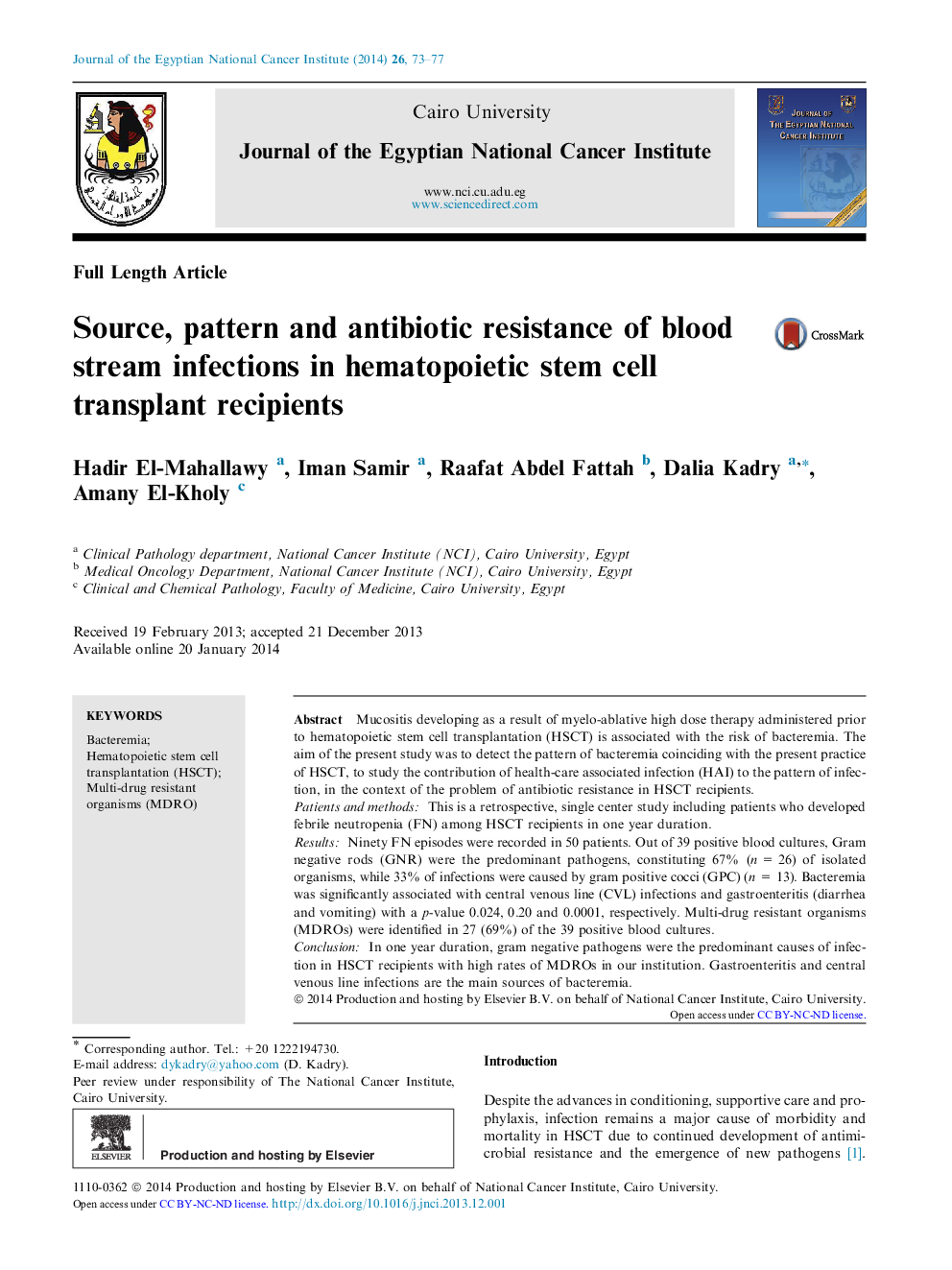| Article ID | Journal | Published Year | Pages | File Type |
|---|---|---|---|---|
| 3989070 | Journal of the Egyptian National Cancer Institute | 2014 | 5 Pages |
Mucositis developing as a result of myelo-ablative high dose therapy administered prior to hematopoietic stem cell transplantation (HSCT) is associated with the risk of bacteremia. The aim of the present study was to detect the pattern of bacteremia coinciding with the present practice of HSCT, to study the contribution of health-care associated infection (HAI) to the pattern of infection, in the context of the problem of antibiotic resistance in HSCT recipients.Patients and methodsThis is a retrospective, single center study including patients who developed febrile neutropenia (FN) among HSCT recipients in one year duration.ResultsNinety FN episodes were recorded in 50 patients. Out of 39 positive blood cultures, Gram negative rods (GNR) were the predominant pathogens, constituting 67% (n = 26) of isolated organisms, while 33% of infections were caused by gram positive cocci (GPC) (n = 13). Bacteremia was significantly associated with central venous line (CVL) infections and gastroenteritis (diarrhea and vomiting) with a p-value 0.024, 0.20 and 0.0001, respectively. Multi-drug resistant organisms (MDROs) were identified in 27 (69%) of the 39 positive blood cultures.ConclusionIn one year duration, gram negative pathogens were the predominant causes of infection in HSCT recipients with high rates of MDROs in our institution. Gastroenteritis and central venous line infections are the main sources of bacteremia.
